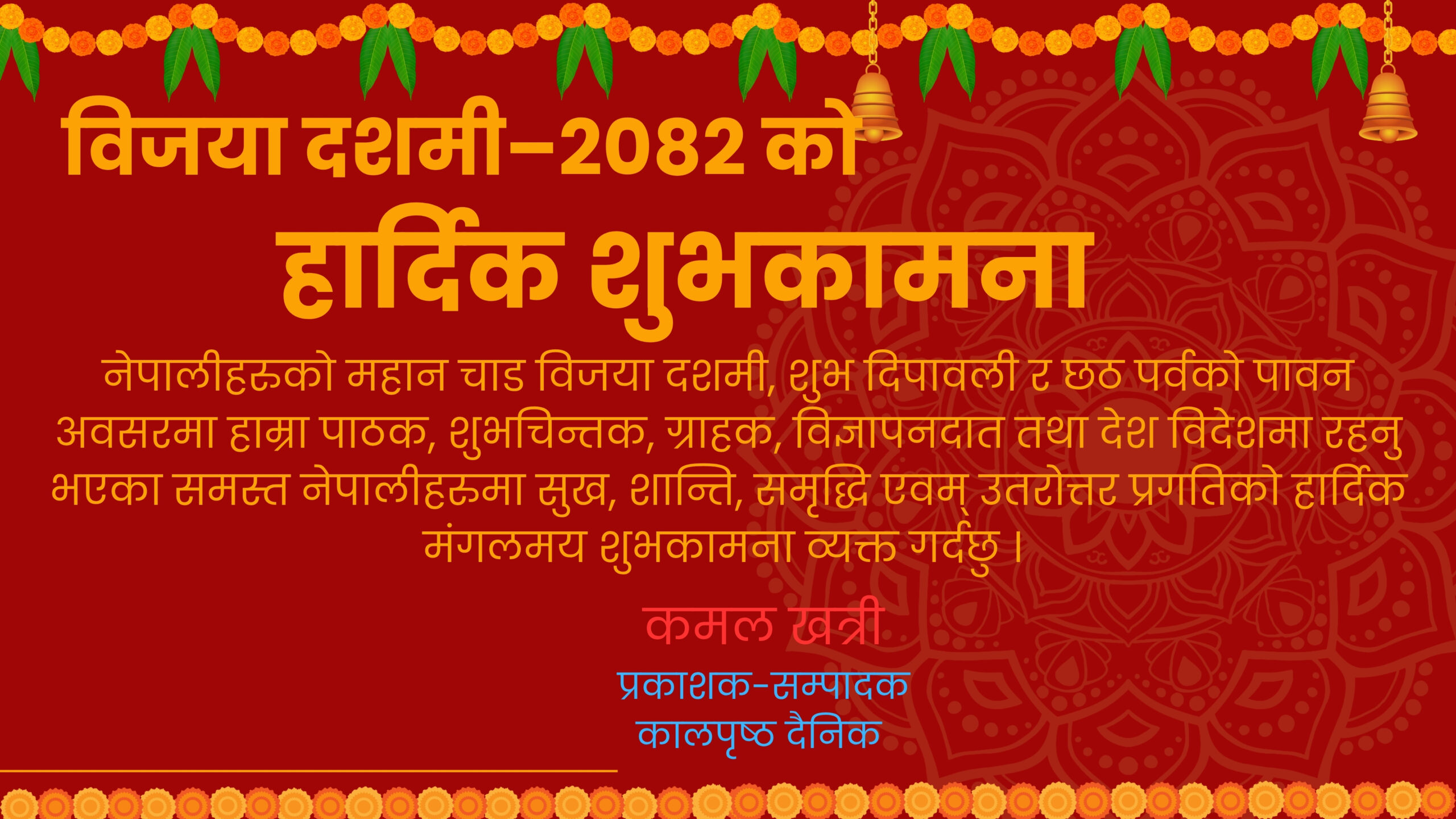A City of Athletes, But Not Yet a City of Events
Wednesday, May 14th, 2025, 11:25 am
Kalpristha
Chahana Shah
Nepalgunj, 14 May 2025
Though Nepalgunj has proudly hosted national-level games and is home to several athletes who have represented Nepal on international stages—including the Olympics—the city still faces significant hurdles when it comes to organizing major sporting events. Having worked closely on a recent sporting event myself, I witnessed both the potential and the persistent gaps in our readiness.
Nepalgunj, a vibrant city in the southwestern plains of Nepal, has long been a melting pot of cultures and communities. With growing interest in sports and several local talents emerging in recent years, the idea of hosting national or even international sports events seems enticing. But is the city truly ready?
Infrastructure: The First Hurdle
To host large-scale sports events, infrastructure is key. Nepalgunj currently lacks a multi-purpose stadium that meets national or international standards. Existing facilities are often outdated, lacking proper seating arrangements, sanitation, locker rooms, or even basic field and lighting for evening matches. Training facilities for athletes are minimal, forcing many to move to Kathmandu or other cities to pursue their athletic dreams.
Moreover, the city does not have a sufficient number of quality hotels or transport systems to handle a large influx of athletes, media personnel, and fans. While the airport connects Nepalgunj to major cities, flight delays and limited capacity can become logistical nightmares during high-stakes tournaments.
Hospitality Gaps: Reluctant Hotels, Missed Opportunities
One major and often overlooked barrier to hosting national or international events in Nepalgunj is the hesitation of local hotels to accommodate athletes and organizing teams. Many hotel owners express doubts or even outright reluctance to host players—citing concerns about crowding, dietary needs, or general unfamiliarity with sports logistics.
This sends the wrong message to the sports community. Hospitality should be one of the pillars of any event-hosting city, yet here, it’s often a stumbling block. When teams and officials arrive in a city, they should feel welcomed—not like a burden. This attitude not only damages the city’s reputation but also creates serious logistical headaches for organizers.
Community Mindset and Support
Nepalgunj is, in many ways, a close-knit and traditional community. While this fosters a strong sense of belonging, it can sometimes stifle progressive initiatives. There is a need for a cultural shift in how sports are perceived—not just as pastimes, but as viable professions and sources of pride.
Local authorities and communities have shown enthusiasm during smaller events, but sustaining that support for larger, more demanding undertakings is another matter. Civic engagement, volunteer programs, and media presence all need to be scaled up if the city wants to elevate its sports profile.
The Silent Stands: Lack of Enthusiastic Spectatorship
Perhaps the most disheartening reality is the lack of a passionate and engaged audience. Despite successful organizing efforts, the turnout and energy at events often fall short. Many locals seem detached, unaware of the significance of the games or the achievements of the players they live alongside. Without active community support, even the best-organized event feels flat.
For any city aspiring to become a sports hub, the audience is not just a crowd—it’s a vital part of the ecosystem. Enthusiastic spectators attract media, sponsorship, and national attention. In Nepalgunj, the silence from the stands is still too loud to ignore.
Weather and Geography
The climate of Nepalgunj poses its own challenges. Summers can be scorching, with temperatures soaring above 40°C, making outdoor events uncomfortable and even dangerous. The monsoon season brings heavy rains, often disrupting schedules and damaging facilities. While winter is relatively mild and more favorable, it narrows the event calendar considerably.
The Way Forward
Nepalgunj has potential. Its location near the Indian border can attract cross-border participation and audience. There is untapped enthusiasm among youth, and with proper investment and planning, the city could transform into a regional sports hub.
Conclusion
Nepalgunj has heart, history, and talent—but it also has hesitation. Until the community, local businesses, and institutions unite behind a shared vision for sports, we will remain a city that sends athletes to compete, but cannot yet invite the world to watch. The potential is here—we just need to believe in it, invest in it, and act on it.

















